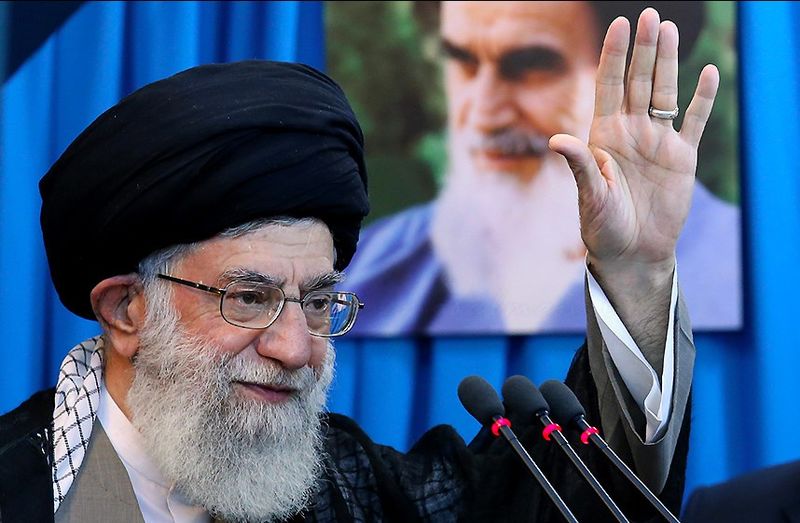While escaping the Texas summer heat today (over 100 degrees in Dallas), I found time to catch up on some reading. Maybe I’m odd or maybe the heat has gotten to me, but today’s reading was the full text of the “Iran Nuclear deal.” More than thirty pages of it is a list of companies that are no longer on the sanction list. Another ten or twenty pages are devoted to aircraft parts and technology that are no longer going to be restricted. In addition, billions of dollars in currency, treasuries, and gold bullion will be transferred to Iran. There are no restrictions on how they will use that money. It can be used for buying TVs, gift certificates to Walmart, or C-4 explosives and rocket propelled grenades for surrogate fighters for Iranian interests in Gaza or Syria.
Not to worry however, from the document comes this quote that puts everything at ease:
[The] Joint Comprehensive Plan of Action (JCPOA), … will ensure that Iran’s nuclear programme will be exclusively peaceful, and mark a fundamental shift in their approach to this issue. They anticipate that full implementation of this JCPOA will positively contribute to regional and international peace and security. Iran reaffirms that under no circumstances will Iran ever seek, develop or acquire any nuclear weapons.
Hallelujah. “Iran reaffirms that under no circumstances will Iran ever seek, develop or acquire any nuclear weapons.” That is truly wonderful, except for Taqiyya. Taqiyya is the doctrine of Isl*m that is derived from a number of verses in The Qur’an which allows for misrepresentation to further the cause of their faith. It is possible even to repudiate the faith in order to advance it. In other words, in pursuit of a radical agenda it would be perfectly acceptable to voice a commitment that would not be followed through on.
Under the terms of the agreement, inspections of how Iran is actually using and producing enriched uranium can only be carried out twenty four days after a request for inspection goes forward. Iran is maintaining that it alone can collect the samples that will be used to test for how the process of enriching is being carried out. Linking this with the principle of Taqiyya in the previous paragraph raises the very uncomfortable reality that “someone” might deliver a “sample” to be tested that came from somewhere other than where it is claimed to be sourced.
In fact, the only thing that Iran is required to do is to say that it will “under no circumstances…ever seek, develop or acquire any nuclear weapons.” The problem is that there is a great difference between saying and doing. With no external verification, and no limitations anymore on the development of nuclear capable inter-continental ballistic missiles, the only way to know when those have been fully developed and deployed is when they are ready to be used, or even worse, have been used. Iran already has missiles that have range enough to get to Tel Aviv, Israel, or Riyadh, Saudi Arabia.
Two questions may well be swirling around your gray matter right now. First of all, why on earth would a responsible government agree to an agreement that is this bad, and second, what does this have to do with matters of faith? In other words, why am I writing about a nuclear deal here?
As to the first question, why would a responsible government sign such a totally one-sided agreement? A responsible government would not. This requires such an amazing leap of faith on the part of the US government, it defies logic. It includes both a stunning lack of understanding about Iran and Islam, but it also reveals either utter naïveté or a disregard for the best interests of the United States in order to have some kind of an accomplishment of having “any deal” with Iran. The 159 pages of the agreement (actually about 90 pages of agreement and the rest just “overhead”) have far fewer safeguards than the agreement had when I bought my house.
The postmodern representatives who have agreed to this disaster live in a world in which things mean to them only what they decide they mean, not what they actually say. Like Lewis Carroll’s Queen in “Through the Looking Glass,” things mean whatever they say.
As to the question, “Why I would be writing about this?” it is a question of theological worldview. Many people follow the division that was first introduced in Gnosticism, that there is a division between sacred and secular things. They claimed that it did not matter what they did with their bodies in pursuit of pleasure because the Christian faith only dealt with the Spirit. 1 John deals with that very clearly. In the 19th century, dispensationalists introduced a kind of secular/sacred divide that lingers today where people think that world affairs are not within the purview of the church. I disagree. The doctrine of Incarnation demonstrates that the Creator is intimately involved in the creation and we should care about the human condition in all aspects of life.
In previous centuries, it was not uncommon for clergy to comment on legislation. For example, when the law in England changed regarding marriage, the Rev. H.H. Norris wrote this sermon:
A Sermon,
Preached At South Hackney Church,
On Sunday, July 2, 1837,
On Occasion of the New Law of Marriage Coming into Operation
By The Rev. H. H. Norris, A.M. Rector of South Hackney, and Prebendary of St. Paul’s, and Landaff.
In 1750, the Rev. Jonathan Mayhew wrote “A Discourse Concerning Unlimited Submission and Non-Resistance to the Higher Powers,” as a discourse about leaders becoming tyrants. Similarly, in 1827, the Rev. Ezra Stiles Ely wrote a sermon, “The Duty of Christian Freemen to Elect Christian Rulers.”
It was only in the 1960’s when then Senator Lyndon Johnson feared that church leaders were coming against his political agenda (which most independent commentators would agree was not free of corruption), he used the Internal Revenue Service and threats of withdrawing tax-exempt status from churches whose leaders criticized his agenda. Following that, the pattern developed that church leaders did not preach about temporal things. That, however, was wrong. In the mind of God there is no distinction between secular things and sacred things. He thinks He is Lord over all things, even the ones that His detractors refuse to acknowledge. We need to correct the imbalance. The “Iran Deal” can impact the whole world by introducing atomic weapons into the hands of those who vow “Death to America” and vow to “wipe Israel off the map.” The Iran Nuclear Deal is no deal at all. It is capitulation to the introduction of nuclear weapons into the hands of those who have vowed that their god has ordered them to use them. That is delusional, and the Church has a responsibility to say so. There should be no deal. Go back to the table and negotiate a deal that is verifiable. The failure to do that is beyond imagination’s ability to fathom.



